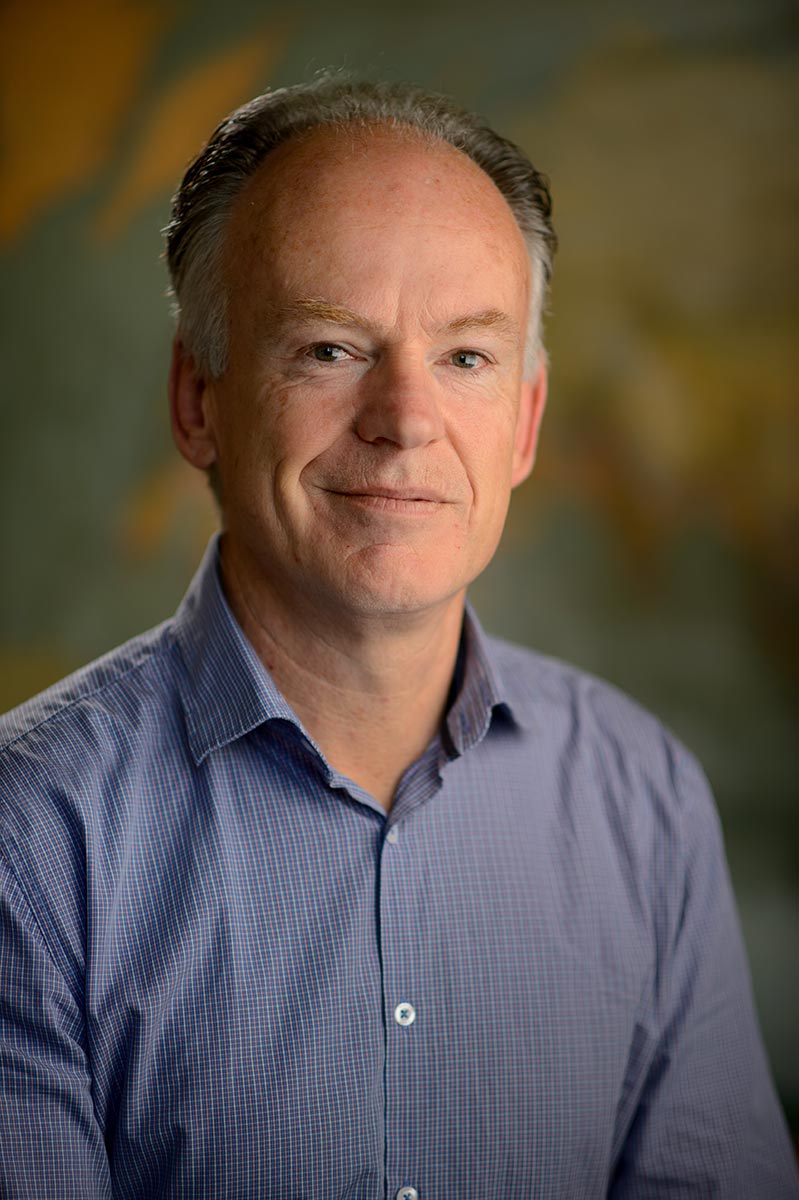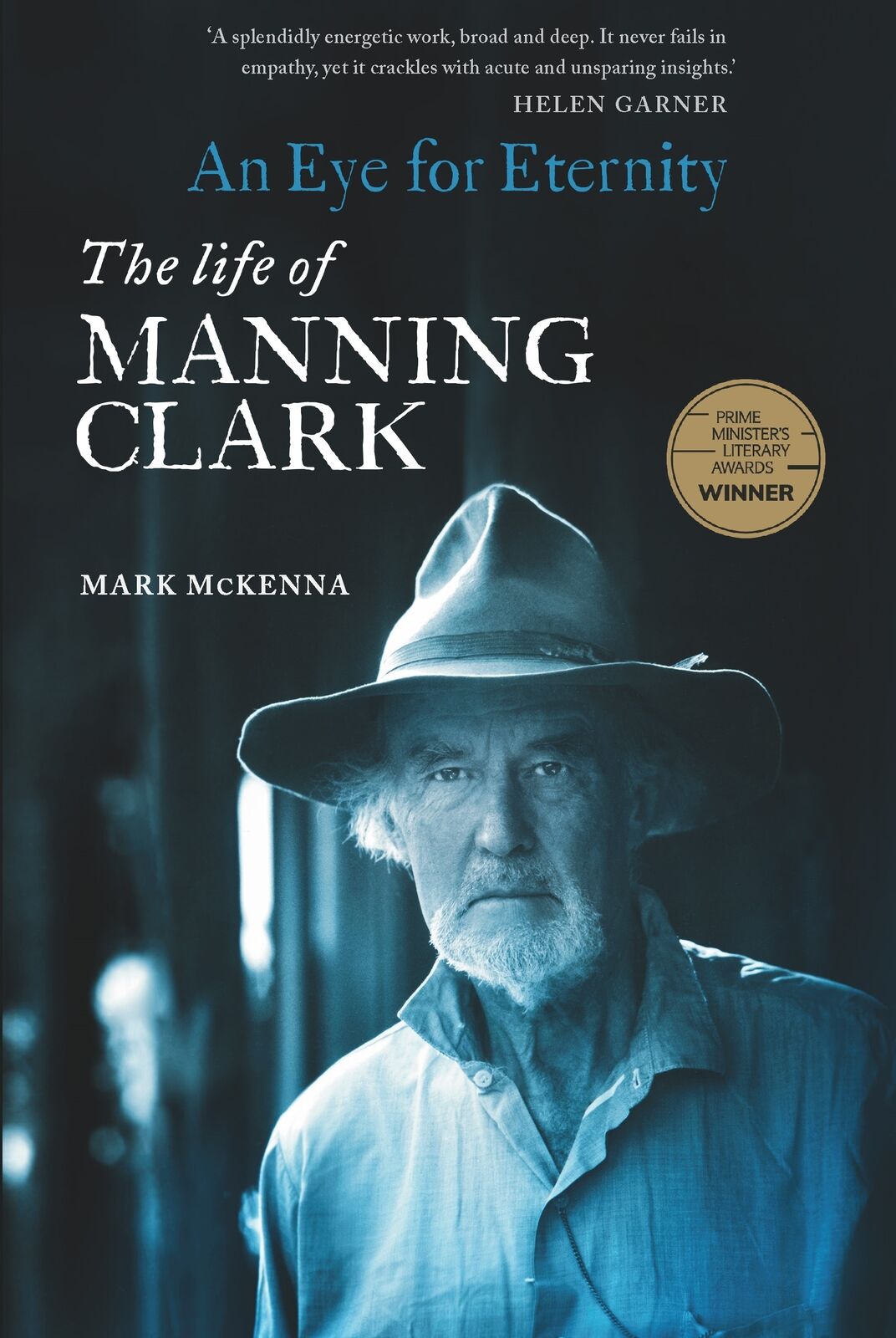In this episode of Biographers in Conversation, the historian Mark McKenna chats with Gabriella about the choices he made while writing An Eye for Eternity. The Life of Manning Clark, the biography of Australia’s legendary historian, Manning Clark.
Mark McKenna reveals the meaning behind the book’s title, An Eye for Eternity, and how he navigated the complexities of interpreting Manning Clark’s painstakingly curated archive of letters and diary entries that contain detailed notes and instructions for his future biographers. He also assesses the extent to which he was able to capture the truth of his subject versus the version of the truth Clark wanted him to represent. Mark outlines his research strategy, how he narrowed the biographical scope and how he reconciled conflicting views of Clark.
Many biographies of prominent men, just one example being a trove of George Orwell biographies written by men, gloss over adulterous behaviour, however, An Eye for Eternity provides deep insights into Clark’s extramarital romances. Mark explains why he chose this approach and the ethical decisions he faced given the potential effects of these revelations on Clark’s children and grandchildren. Equally, the wives of prominent men are often invisible in their biographies, yet Dymphna Clark, Manning’s loyal wife, is a central character in An Eye for Eternity. Mark McKenna clearly represents Dymphna’s point of view and explains why he chose this approach. He also presents details of Clark’s emotionally exploitative relationships with young female research assistants in the 1970s and the ethical and moral decisions he faced in revealing these relationships.
Winner: Prime Minister’s Prize for Non-Fiction 2012
Winner: The Victorian, New South Wales, Queensland and South Australian Premiers’ awards.
"This is a remarkably impressive biography. It is deeply immersed in the subject, unflinching in its assessment yet empathetic in the best sense . . . I found it hard to put down." --Stuart Macintyre, Australian historian and former dean of the faculty of arts, University of Melbourne.
Manning Clark was a complex, demanding and brilliant man. Mark McKenna’s compelling biography of this giant of Australia’s cultural landscape is informed by his reading of Clark’s extensive private letters, journals and diaries—many that have never been read before.
An Eye for Eternity paints a sweeping portrait of the man who gave Australians the signature account of their own history. It tells of his friendships with Patrick White and Sidney Nolan. It details an urgent and dynamic marriage, ripped apart at times by Clark’s constant need for extramarital romantic love. A son who wrote letters to his dead parents. A historian who placed narrative ahead of facts. A doubter who flirted with Catholicism. A controversial public figure who marked slights and criticisms with deeply held grudges.
To understand Clark’s life is to understand twentieth century Australia. And it raises fundamental questions about the craft of biography. When are letters too personal, comments too hurtful and insights too private to publish? Clark incessantly documented his life—leaving notes to the biographers he knew would pursue his story. He had a deep need to be remembered and this book means he will now be understood in an unforgettable way.

‘To write Clark’s life was to struggle with a leviathan’.
Mark McKenna is one of Australia's leading historians. A Professor Emeritus, History at the University of Sydney, he is the author of several prize winning books, including Looking for Blackfellas' Point, which won the Douglas Stewart Prize for Non-Fiction and Book of the Year in the 2003 NSW Premier's Literary Awards. In 2011-12 An Eye for Eternity won five national literary awards, including the Prime Minister's Prize for Non-Fiction. Mark’s essays and articles have been widely published in Australia and overseas.
Learn more: blackincbooks.com.au/authors/mark-mckenna





2 Comments
Thought provoking interview with Mark McKenna, thank you Gabriella. The challenges of working with an archive so deliberately curated by its subject were fascinating and finding the balance between creativity and referentiality always makes for interesting discussion
thanks so much Liz.